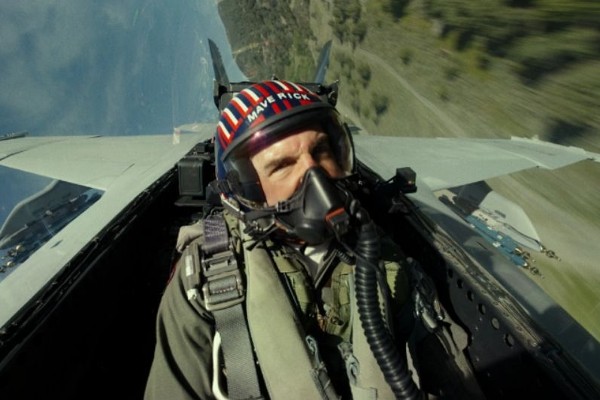How did an Israeli living on a farm in Kfar Hassidim get the copyright to a blockbuster Hollywood franchise?
By Pesach Benson, United with Israel
The family of the late Israeli journalist Ehud Yonay made waves in the entertainment industry by filing a lawsuit against Paramount Pictures on Monday. The suit claims that the just-released blockbuster “Top Gun: Maverick” infringes on their copyright.
It was Yonay’s 7,800-word story about the U.S. Navy’s Top Gun program for training fighter pilots that inspired the “Top Gun” franchise.
The story, titled “Top Guns,” was published along with three sidebars in California Magazine‘s May 1983 edition. Yonay traced the experiences of pilot Alex “Yogi” Hnarakis and his radar intercept officer, Dave “Possum” Cully. Yonay even flew up with them.
Although California Magazine was not widely read (it ceased publishing in 1991), the story came to the attention of Paramount executives, who secured exclusive motion picture rights to “Top Guns.”
That film, released in 1986, was the year’s highest-grossing box office hit, propelling actor Tom Cruise to new heights of stardom.
The movie also credited Yonay as the “story-by” author.
Yonay was born in Haifa in 1940 and who dabbled in short stories before going on to study writing at UCLA and then working as an investigative journalist.
Following the success of Top Gun, he authored a book, “No Margin for Error: the Making of the Israeli Air Force,” which was published in 1993 to critical acclaim.
Yonay lived in Kfar Hassidim, near Haifa, where he developed a farm and lived the remaining years of his life. He died of brain cancer in 2012, survived by his wife, Shosh, and son Yuval.
The Lawsuit
The lawsuit, which lists Shosh and Yuval Yonay as plaintiffs, centers on the rights to long-awaited sequel, “Top Gun Maverick.”
Released on May 26, “Top Gun Maverick” has already raked in $839 million and is already poised to be this year’s top grossing movie.
The lawsuit, filed in a Federal District Court in Los Angeles, claims that the sequel is a “derivative” of Yonay’s work. It also claims that the family notified Paramount in 2018 that it was terminating its grant of author’s rights as of Jan. 24, 2020.
Authors have the right to terminate transfers of copyright after a period of 35 years. Paramount intended to release the sequel in 2020, but filming was delayed several times by the coronavirus pandemic.
The suit further claims that when the family sent Paramount a cease and desist notice, the studio responded that the sequel was “sufficiently completed,” which the family disputes.
The suit seeks unspecified damages as well as an injunction to prevent Paramount from distributing the film.
A Paramount spokesman told The Wrap, an entertainment news site, “These claims are without merit, and we will defend ourselves vigorously.”
Fans of the franchise have long-wondered why a sequel wasn’t made decades ago. Billy Weber, one of the editors of the original 1986 film, told The Hollywood Reporter that it wasn’t possible.
“The studio knew how hard it was to put together and create what we ended up with. I think it was years and years before they ever brought that up,” Weber said. “There wasn’t another foot of film [of the flying] that we didn’t use that we could use. Nothing. Matter of fact, we probably used a couple of shots two or three times.”
The Yonay family has not responded to media requests for comment.
Do You Love Israel? Make a Donation - Show Your Support!
Donate to vital charities that help protect Israeli citizens and inspire millions around the world to support Israel too!
Now more than ever, Israel needs your help to fight and win the war -- including on the battlefield of public opinion.
Antisemitism, anti-Israel bias and boycotts are out of control. Israel's enemies are inciting terror and violence against innocent Israelis and Jews around the world. Help us fight back!























